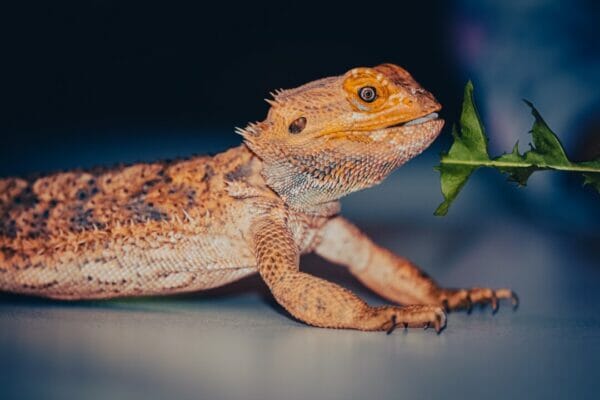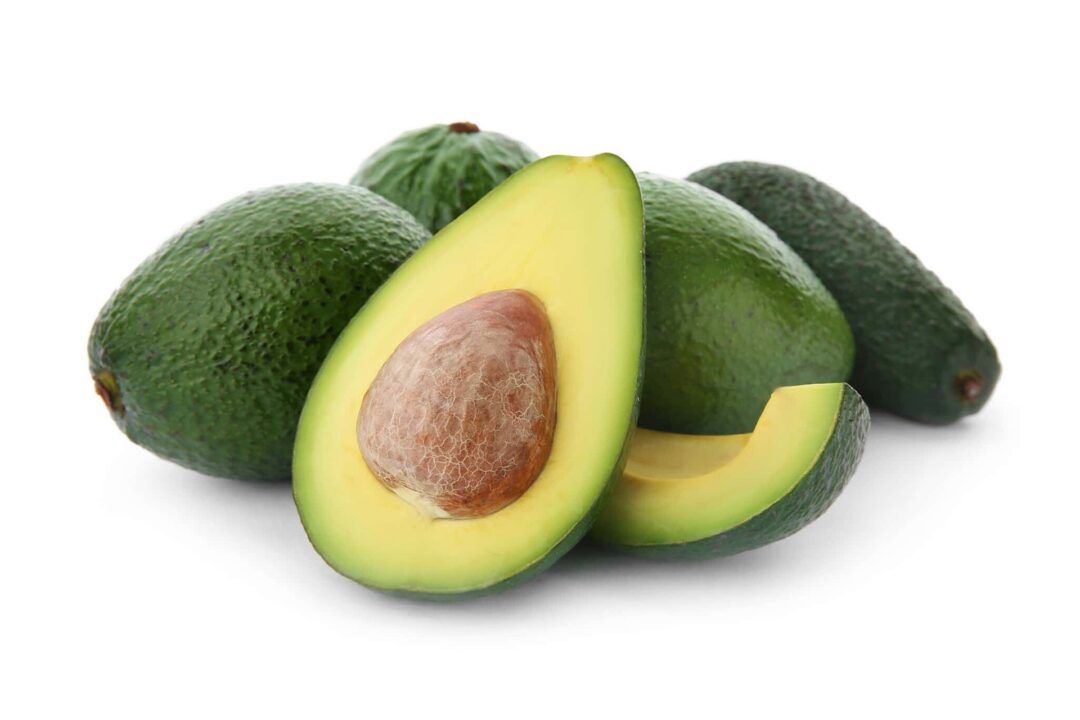Avocado is a green-skinned, single-seeded fruit. It’s nutrient-dense and packed with healthy fats and minerals.
Avocado is a versatile ingredient used in salads, smoothies, dips, and spreads. It’s a great addition to any meal and makes a delicious snack. But what about bearded dragons? Can bearded dragons eat avocado?
This blog post will cover all the information you need about avocado for bearded dragons.
Keep reading to learn more.
Can Bearded Dragons Eat Avocado?
While avocado can be beneficial to human diets, it is unsafe for bearded dragons.
Avocado contains persin, which can be toxic to some animals, including bearded dragons.
It can cause vomiting, diarrhea, and even death. Therefore, feeding avocado to your bearded dragon is not recommended.
Why is Avocado not Safe for Bearded Dragons?
Oxalic Acid
Avocados contain high amounts of oxalic acid, which is a natural compound that can bind with calcium and other minerals to form crystals, leading to kidney and liver damage.
Bearded dragons are not able to process oxalic acid effectively, and high levels of oxalic acid in their diet can cause the development of kidney stones, which can be fatal for them.
Furthermore, oxalic acid can also interfere with the absorption of calcium and other essential minerals, leading to nutritional deficiencies in bearded dragons.
To Much Fat
Avocado is high in fat, which can be difficult for bearded dragons to digest.
In addition, too much fat can lead to weight gain and other health issues.
It’s best to avoid feeding high-fat foods, such as avocado, to your bearded dragon.
Fungicidal Toxins
Avocado trees produce a fungicidal toxin called persin, which is present in the avocado leaves, bark, and fruit. While persin is not harmful to humans, it can be toxic to bearded dragons.
The consumption of persin can cause respiratory distress, fluid accumulation in the lungs, and heart damage.
Additionally, persin can also cause digestive issues such as vomiting and diarrhea.
Unbalanced Calcium-to-Phosphorus Ratio
Bearded dragons require a diet that is high in calcium and low in phosphorus. Avocados have an unbalanced calcium-to-phosphorus ratio, which can lead to nutritional deficiencies in bearded dragons.
A diet deficient in calcium can lead to metabolic bone disease, a common health issue in bearded dragons.
Additionally, a diet high in phosphorus can interfere with calcium absorption, leading to further nutritional deficiencies.
What Should You Do If Your Bearded Dragon Eats an Avocado?
If your bearded dragon has eaten an avocado, you can take steps to prevent any possible health issues.
Call a Vet
The first step is to take your bearded dragon to the vet for a thorough check-up. The vet will be able to assess your dragon’s health and determine the best course of action.
Feed a Balanced Diet
It’s important to ensure that your bearded dragon gets a balanced diet. Make sure to feed your dragon various fresh fruits, vegetables, and insects to ensure they get all their essential nutrients.
Warm Bath
A warm bath is an effective way to help your bearded dragon digest the avocado. It will reduce gastrointestinal irritation and help flush out the toxins in the avocado.
Monitor your bearded dragon
Monitor your bearded dragon for any signs of distress or illness after eating an avocado. If you notice any changes in their behavior, take them to the vet immediately.
Water
Make sure your bearded dragon is getting plenty of fresh water. It will help flush out any toxins and keep them hydrated.
Activated Charcoal
Activated charcoal can help absorb the toxins in the avocado and prevent them from entering your bearded dragon’s bloodstream.
It’s available at most pharmacies or health food stores. Follow the directions carefully and consult a vet before giving it to your bearded dragon.
Some Other Food that You Should Avoid Feeding Your Bearded Dragon
Although avocado is not safe for bearded dragons, there are other foods that should also be avoided.
Some of these include:
Lettuce: Lettuce has very little nutritional value and can cause digestive problems.
Spinach: Spinach can cause problems with calcium absorption.
Mushrooms: Mushrooms contain toxins that can be toxic to bearded dragons.
Garlic: Garlic can cause anemia in bearded dragons.
Onions: Onions can cause digestive problems and anemia.
Fruit seeds: Fruit seeds are hard to digest and can cause intestinal blockage.
Wild insects: Wild insects can carry parasites that can harm your bearded dragon.
Cat and dog food: Cat and dog food is not designed for reptiles and can cause health problems.
Avocados: As mentioned earlier, avocados contain persin and oxalic acid, which can be toxic to bearded dragons.
What Can You Feed Your Bearded Dragon Instead?

Fortunately, there are plenty of safe and nutritious foods that you can feed your bearded dragon. Some good options include:
Fruits: Apples, pears, melons, and grapes
Vegetables: Carrots, sweet potatoes, squash, and kale
Leafy greens: Mustard greens, collard greens, and turnip greens
Insects: Dubia roaches, crickets, and mealworms
Always make sure to feed your bearded dragon a variety of foods and follow the recommended feeding guidelines.
It’s also important to provide fresh, clean water at all times and monitor your bearded dragon for any signs of health problems.
Your bearded dragon will stay happy and healthy with a balanced diet, plenty of clean water, and regular vet check-ups.
FAQs
Can bearded dragons eat avocado?
No, it is not recommended to feed bearded dragons avocados as it is toxic to them.
Why is avocado toxic to bearded dragons?
Avocado contains a toxin called persin, which can cause respiratory distress, heart failure, and even death in bearded dragons.
What are some symptoms of avocado toxicity in bearded dragons?
Symptoms may include difficulty breathing, lethargy, weakness, fluid accumulation in the chest or abdomen, and sudden death.
Can bearded dragons eat avocado seeds?
No, bearded dragons should not eat avocado seeds.
Can bearded dragons eat avocado leaves?
No, bearded dragons should not eat avocado leaves or any other parts of the avocado plant. All parts of the avocado plant, including the leaves, contain a toxin called persin, which is harmful to bearded dragons and can cause respiratory distress, heart failure, and even death. It is best to avoid feeding avocado or any parts of the plant to your bearded dragon.
How often should I feed my bearded dragon fruits?
Fruits should make up no more than 10% of your bearded dragon’s diet and should be offered only occasionally as a treat.
Can bearded dragons drink avocado oil?
No, bearded dragons should not consume any form of avocado, including oil.
What should I do if I suspect my bearded dragon has eaten avocado?
Contact your veterinarian immediately for advice on how to treat your bearded dragon.
Conclusion
Avocados are not safe for bearded dragons due to their high levels of oxalic acid, high-fat content, fungicidal toxins, and unbalanced calcium-to-phosphorus ratio.
Bearded dragons require a balanced diet that is high in protein, low in fat, and provides adequate levels of calcium and other essential minerals.
Therefore, it is important to avoid feeding avocados to bearded dragons and instead offer them a variety of safe and nutritious foods that meet their dietary requirements.
Related Articles:
Can Bearded Dragons Eat Cockroaches?

